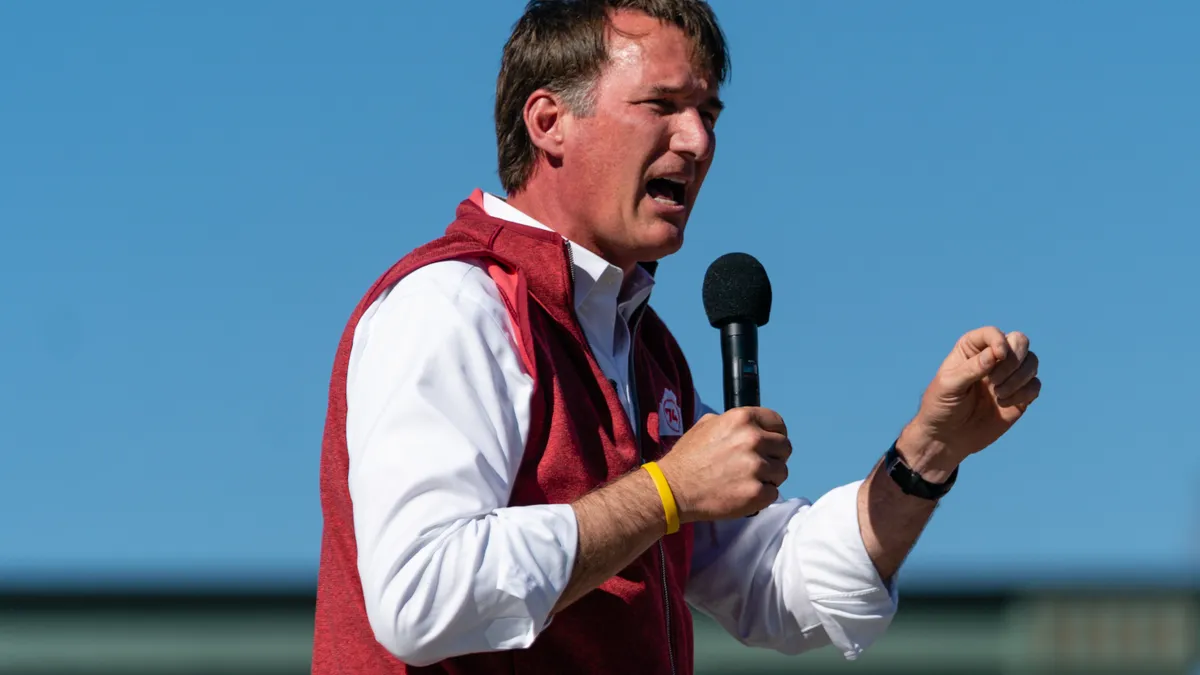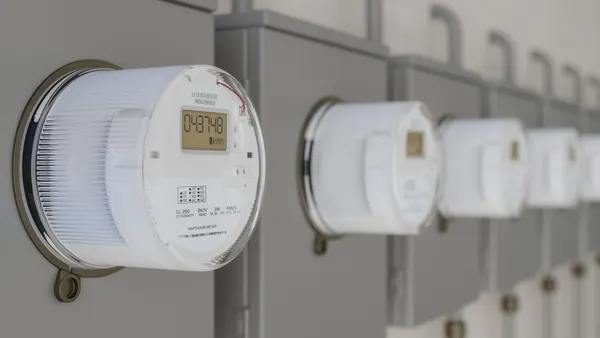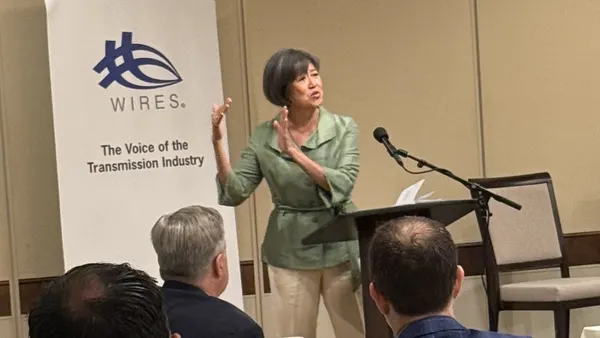Dive Brief:
- Virginia Governor Glenn Youngkin is acting more like the CEO he was before his election in attempting to pull the commonwealth out of the Regional Greenhouse Gas Initiative, or RGGI, according to Sen. Adam Ebbin.
- Youngkin says that membership in RGGI amounts to a tax on residential electricity use. The former co-CEO of the Carlyle Group made cutting taxes the centerpiece of his 2021 campaign for governor.
- Republican lawmakers in the now-divided General Assembly were unsuccessful in their efforts earlier this year to overturn the 2020 law that directed Virginia to join RGGI. As a result, Youngkin is eyeing an administrative action to leave RGGI in December of 2023. But a legal opinion issued by then-Attorney General Mark Herring in January says he does not have that power.
Dive Insight:
In the brief time that Virginia has been participating in RGGI, the state has garnered $452.2 million in proceeds from the quarterly auction of allowances to generators. Rules of the “cap-and-invest” initiative require fossil fuel electricity generators to hold allowances equal to their carbon dioxide emissions over a three-year period.
The funds have been used by state agencies chiefly for flood mitigation projects and home weatherization programs.
Generators pass through the cost of purchasing emissions allowances to their customers as a monthly fee, which is why Youngkin refers to the RGGI participation as a tax.
Virginia’s dominant utility, Dominion, estimates that RGGI participation adds $2.39 per month to the average residential customer bill.
Established in 2009, RGGI is a non-profit compact of states in the Northeast designed to reduce emissions linked to global warming.
Virginia became a RGGI member in 2020 after the Democratic-controlled legislature passed and then-Governor Ralph Northam — a Democrat — signed the Clean Energy and Community Flood Preparedness Act.
The law explicitly called for Virginia to join and the Department of Environmental Quality to oversee a CO2 cap-and-trade program to reduce emissions from electric generation facilities.
At the Aug. 31 meeting of the State Air Pollution Control Board, Travis Voyles, acting secretary of the Department of Natural and Historic Resources, said “Virginia does not intend to renew its contract with RGGI, Inc. when the contract expires in Dec. 2023,” according to Aaron Proctor, spokesman for the DEQ.
Voyles added that the administration would initiate the repeal of the regulations that govern the state’s participation in the regional CO2 market through the standard rulemaking process.
“This is because RGGI does not work as promised to Virginians,” Proctor said, adding that RGGI “operates as a regressive and direct tax on consumers” that has raised electricity rates and is “reason enough to have serious doubts about our future participation in the program.”
“Participation in RGGI is not necessary to fund important programs on resiliency and energy efficiency,” he said.
The Youngkin Administration and the General Assembly will develop a plan to provide direct funding and coordination for flood resilience, he said.
But there is no guarantee that the governor’s approach to funding will include low-income home weatherization money as well and satisfy Democratic lawmakers.
“The compact is working. There’s no reason to consider withdrawing from RGGI, but If the governor wants to withdraw from RGGI, he has to learn how to govern,” Ebbin said.
“He thinks he can be the CEO and just order things to happen and that’s not the way government works,” Ebbin said of Youngkin, referring to his tenure with Carlyle Group, a private equity firm.
“The governor needs to work with other branches rather than try to work around them,” he said.
One unanswered question concerns the contents of a memo by Virginia Attorney General Jason Miyares on the legality of what Youngkin is contemplating.
Miyares’ office did not return calls and emails seeking comment on his opinion.
And DEQ’s Proctor said, “regarding the memo, we will defer to the office of the Attorney General.”
Democrats in the legislature say Youngkin lacks the authority, pointing to a legal opinion issued Jan. 11 by outgoing Attorney General Herring just days before Youngkin was sworn into office.
“The bottom line is the governor has no authority to unilaterally remove Virginia from RGGI,” Ebbin said. The 2020 legislation “made it clear that RGGI is the law of the land in Virginia and that means it would take a new act from the General Assembly to withdraw from RGGI – which is not happening,” Ebbin said.
If Youngkin wants to pursue a legislative repeal of RGGI membership, he may have to wait until November 2023, when all members in both chambers of the General Assembly will be up for election












